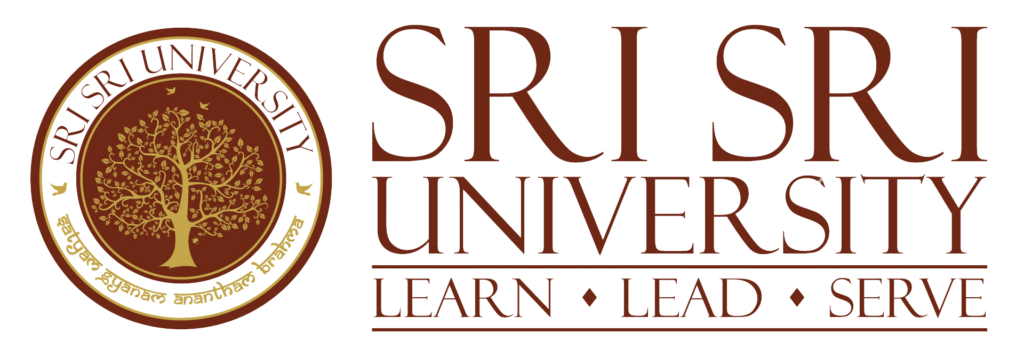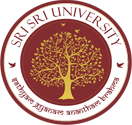COURSE HIGHLIGHTS
- Introduction
- Course Features
- PROGRAM OUTCOME
- B.Tech. in Computer Science Engineering with a specialization in Cyber Security & Cyber Defense is a 4-year undergraduate program where a student would learn the intricacies of keeping cyberspace safe and secure.
- Through the course of Cyberdefense, a student would be taught computer network defense mechanisms which include response to actions and prime infrastructure protection for institutions, government bodies, and other networks.
- The program focuses to teach students to build cyberspaces that prevent attacks by detecting and providing timely responses to threats, which ultimately ensures that no information gets tampered with.
- Cybersecurity and cyber defense run at a multitude of activities from safeguarding the platform by protecting the environment from possible attackers to interpreting critical locations, and delicate facts/data.
- It also deals with creating preventative controls that make the attacks expensive, analyzing and identifying vulnerable pathways that the attackers could target. It also helps in improving the effectiveness of the security resources and expenses.
Our salient course features include :
- Contemporary knowledge and understanding of management theory with technology in mind.
- Theoretical and applied perspectives.
- The ability to apply knowledge and skills in Cyber Security.
- An understanding of the fundamentals of information systems, including digital business models, IS architecture, and nascent technologies.
- An understanding of the principles of Cyber Security, including cybercrime theory, basic security, and Cyber Security auditing and assessment.
- Students would be provided with in-house incubation support which is approved by the Govt. in order to aid their entrepreneurial efforts.
- Exclusive cultural & literary clubs providing versatile exposure to students.
- Students can access the portals where classes and resources would be recorded and they would be able to retrieve them 24*7 as per their convenience.
- We would also provide guest classes by industry experts so that students get first-hand knowledge of the market scape and industry demands
- Internship opportunities would be provided from 1st year onwards with minor/live projects.
- The course curriculum would be updated each year at par with industry demands.
- In case a student opts for Integrated Program after BTech, either an MBA or MTech, then we would assure a placement guarantee of a minimum 15 lakhs package. As we would be following the model of Offer-Training-Deployment
- We also have the collaborative program in place with foreign universities, where a student in his 4th year can opt-in through the medium of virtual classes, and on the final/5th year can complete his on-site studies.
What you will learn
- You will learn how to analyze policy, trends, and intelligence to better anticipate and identify current and emerging cyber threats.
- You will also learn how to evaluate practices and procedures to prevent or minimize attacks.
- You will better understand the importance of risk management both from the Cybersecurity perspective as well as from the management perspective.
Benefits
- Academia-Industrial Visit
- Internships 2-3 weeks durations
- Hands-on working in the virtual Cyber Range and LMS
- Development of Simulations Labs
- Product and Service Development and Startup
- Onboarding the companies/ organizations as an expert
- Bouquet of Activities of CyberPeace Foundation
- Global CyberPeace Challenge eRaksha – Nationwide online safety competition
- Hackathons
- Seminars
- Conferences
- Colloquiums
- Roundtables
- Global CyberPeace Dialogues
- Global CyberPeace Summit
- CyberPeace Clubs
- Engineering knowledge: Apply the knowledge of mathematics, science, engineering fundamentals, and an engineering specialization to the solution of complex engineering problems
- Problem analysis: Identity, formulate, review research literature, and analyze complex engineering problems reaching substantiated conclusions using the first principles of mathematics, natural sciences, and engineering sciences
- Design/development of solutions: Design solutions for complex engineering problems and design system components or processes that meet the specific needs with appropriate consideration for public health and safety, and the cultural, societal, and environmental considerations
- Conduct investigations of complex problems: Use research-based knowledge and research methods including design of experiments, analysis and interpretation of data, and synthesis of the information to provide valid conclusions
- Modern tool usage: Create, select, and apply appropriate techniques, resources, and modern engineering and IT tools including prediction and modeling to complex engineering activities with an understanding of the limitations
- The engineer and society: Apply reasoning informed by the contextual knowledge to assess societal, health, safety, legal and cultural issues and the consequent responsibilities relevant to the professional engineering practice
- Environment and sustainability: Understand the impact of professional engineering solutions in societal and environmental contexts, and demonstrate the knowledge of, and need for sustainable development
- Ethics: Apply ethical principles and commit to professional ethics and responsibilities and norms of the engineering practice
- Individual and team work: Function effectively as an individual, and as a member or leader in diverse teams, and in multidisciplinary settings
- Communication: Communicate effectively on complex engineering activities with the engineering community and with society at large, such as being able to comprehend and write effective reports and design documentation, make effective presentations, and give and receive clear instructions
- Project management and nance: Demonstrate knowledge and understanding of the engineering and management principles and apply these to one’s own work, as a member and leader in a team, to manage projects and in multidisciplinary environments
- Life-long learning: Recognize the need for, and have the preparation and ability to engage in independent and life-long learning in the broadest context of technological change
COURSE DETAILS
COURSE FACT SHEET
45% In PCM at +2 Sc Level /
45% in total at +2 Sc level with rank in SSU CET /JEE (Main) / OJEE/
Any other State Level & National Entrance Test
ELIGIBILITY
(For ADMISSION)
08 SEMESTER
(04 YEARS FULL TIME)
INR 80,000
(TUITION FEE PER SEMESTER**)
What People Say About Us

Vandana Shiva, Social Activist
Author
This is a University for the future where everyone has a right share of economic, spiritual and social well-being. am so impressed by this campus because it isn't a clone of what is being taught everywhere else. It is connecting the ancient values to the needs of the present.

Dr. Vijay, Professor
University of Hyderabad
I am quite impressed with facilities, cordial staff and highly talented faculty members here. They have very unique programs. I am qu campus infrastructure and Integrated programs they are running right now. wish them luck for the Ayurveda hospital!

Vinish Kasturia
Mathematics Professor, IIT
I found the campus quite beautiful and serene. Around here, it is a different kind of experience. It is away from hustle and bustle of city near Cuttack and Bhubaneswar. If you want to do meditation or spend some time to do some serious work like writing, thinking, contemplating, this is a wonderful place.
Ms. Anja Jessurun Director Shankara
Health And Wellness By Ayurveda Netherlands, Europe
We needed more experienced people from India. Therefore, we visited Sri Sri University. After my visit I was very impressed by the total i.e. the location. the knowledge and the atmosphere. I met 10 students and they pitched their ideas to me, which they did really well. I was really impressed by the management and the things they said which I was recollecting all my way back and which will remain with me all my life.

Mr. Sourabh Sharma Manager
Supply Chain Maruti Suzuki India Ltd
Mr. Kishan is a work dedicated guy who quickly understood what the expectations were from the project & put all efforts to achieve the same. He was punctual throughout the SIP. The most important thing is, even not being from engineering background, he grasped the project so quickly and delivered very well. This speaks of his dedication and commitment for the work.
Applications for 2024 Open

